Eisel: People always think we are a circus out there
Dimension Data rider on his role with the UCI Athletes Commission and enacting change in the sport
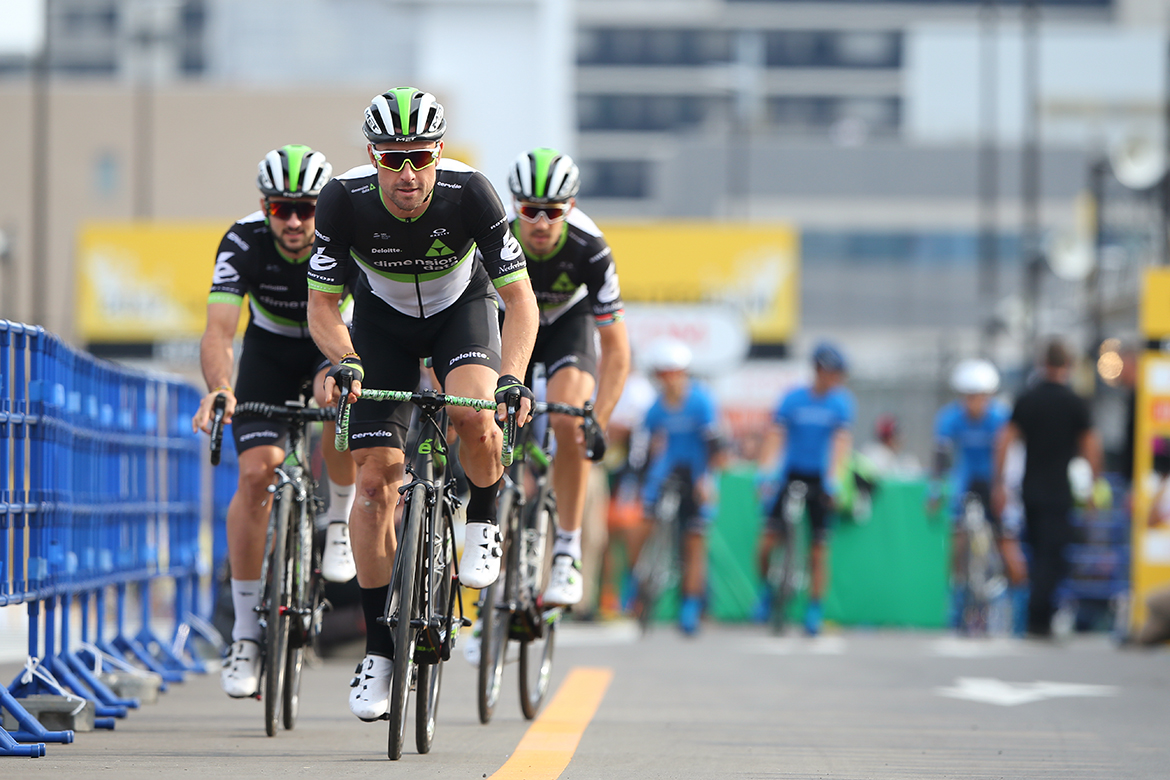
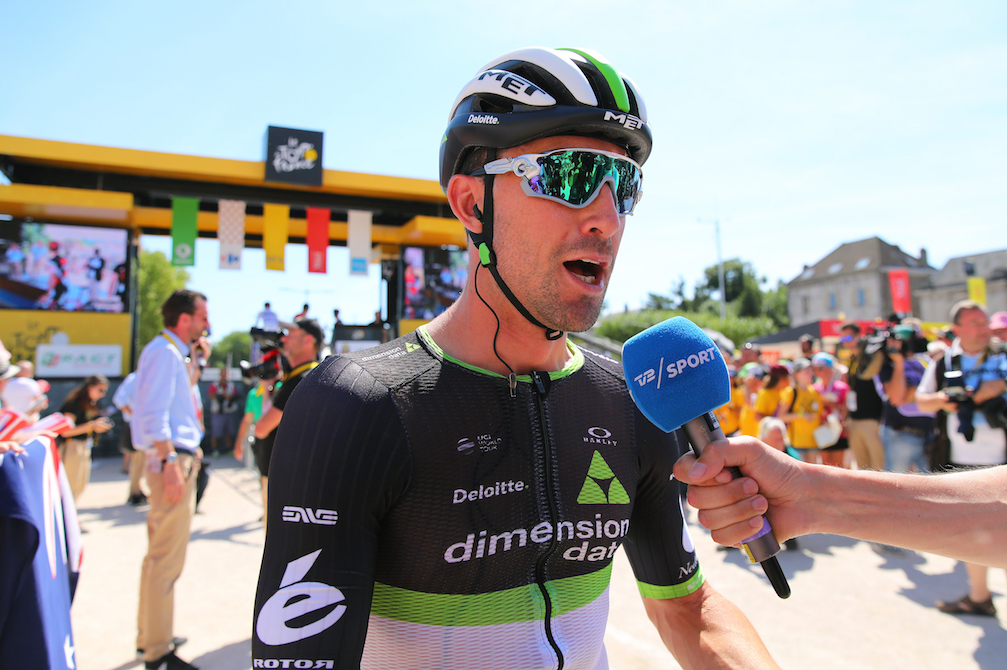
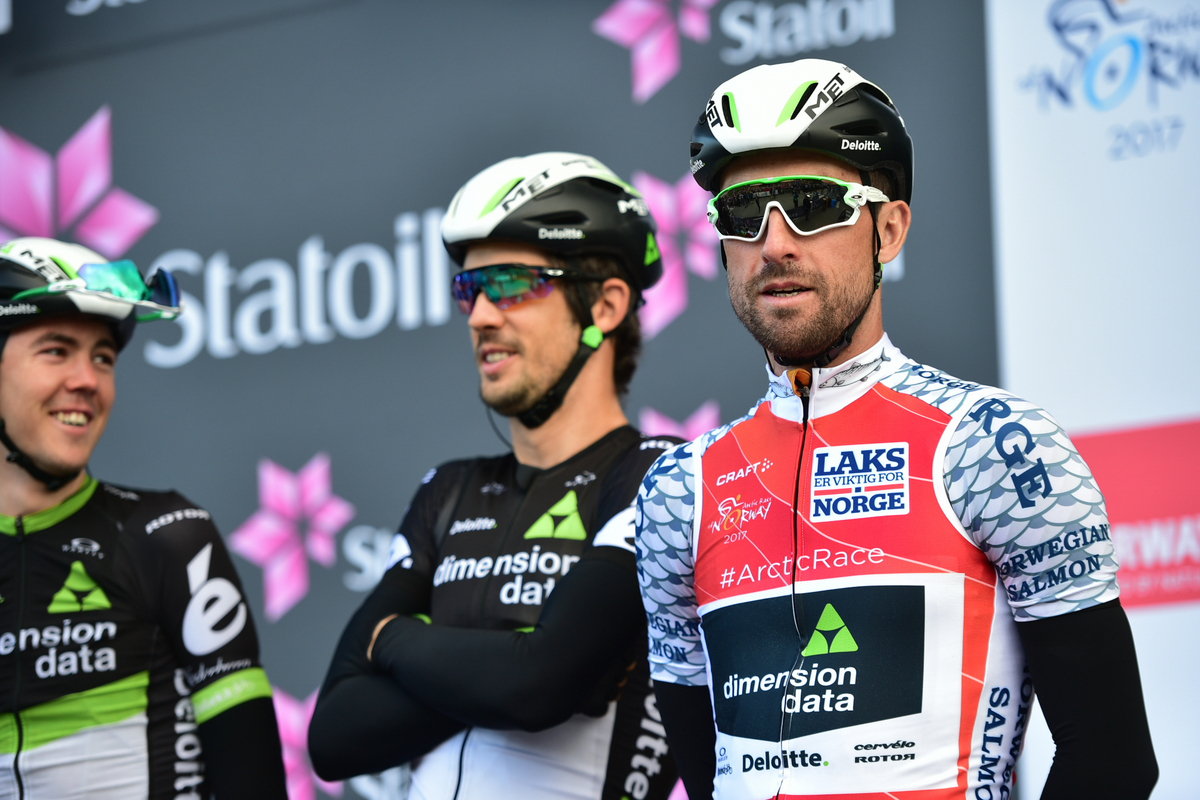
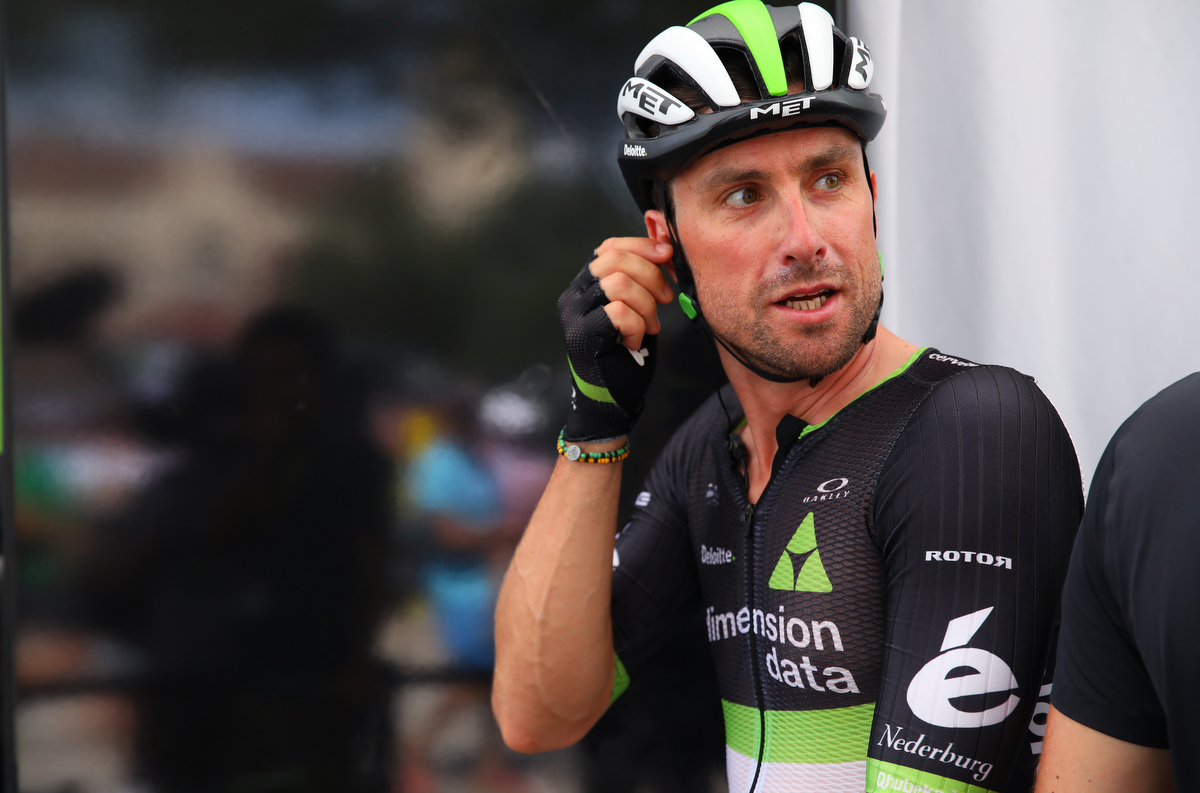
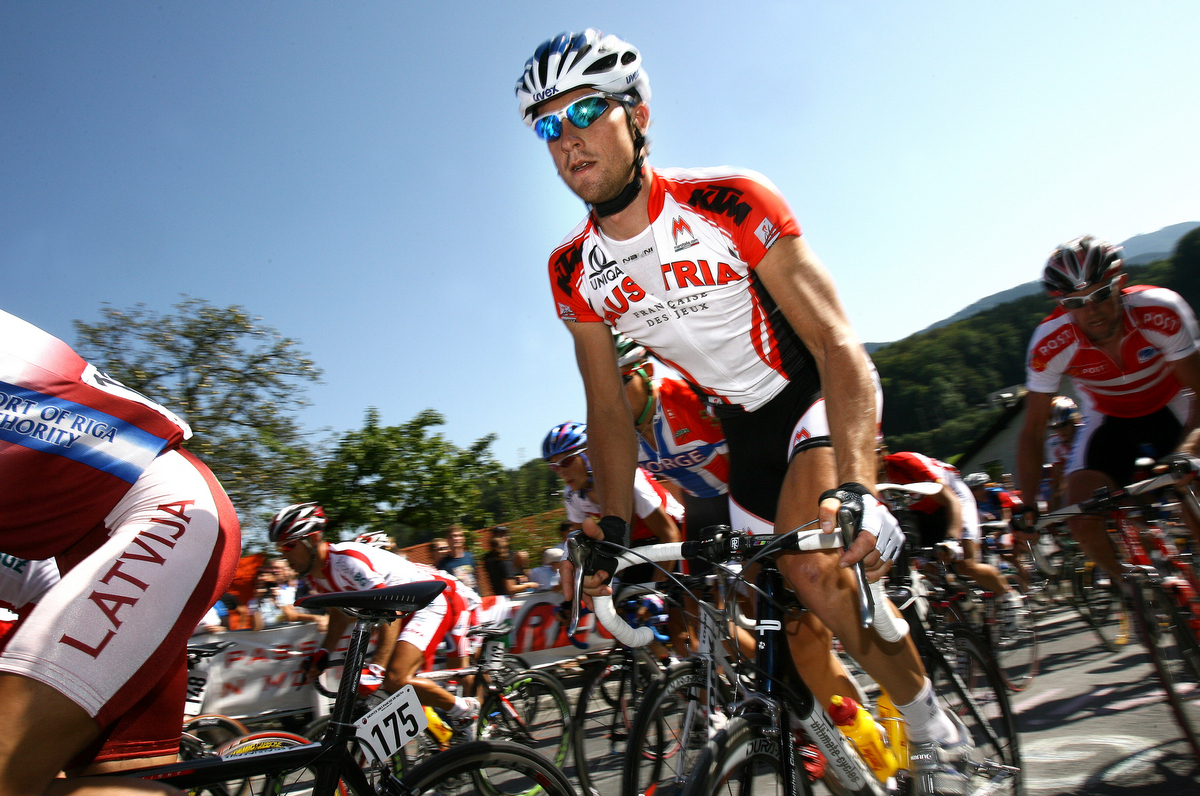
An inaugural member of the UCI Athletes Commission in 2011, Bernie Eisel was re-elected in September with a 71 per cent majority. The Austrian on Dimension Data has been one of the more outspoken riders in the peloton regarding the safety of his colleagues, aiming to create a safer and more financially viable sport.
With two young children, Eisel decided to step down from his role on the commission, but having since been repeatedly asked to resume, the 36-year-old explained his return to Cyclingnews.
"Now it is getting towards the end of my career, I had a lot of people asking me to do it and so I was like,'OK, I liked doing it but I wasn't really happy with the outcome when I was in the PPC [Professional Cycling Council],'" Eisel explained to Cyclingnews at the recent Tour of Guangxi.
"At the same time, I have heard too many riders in the past say, 'Why are you doing this? It will never change'. But change happens if you push for it, and we have seen a lot of change in the sport. Probably not always in the favour of the riders. At the same time, teams can't be happy with how it is at the moment."
Expanding upon his reasoning, Eisel said the status quo is not sustainable for riders, sponsors, or organisers, and rather than simply complain, he is being proactive and trying to force positive change.
"We need a better structure of financing and we still talk about 85-90 per cent of team budget coming from one sponsor, and this is just not a good model of financing or having a stable budget," he said.
"At the same time, I am always against people just complaining all the time. Organisers are whining there is no money, teams do the same, riders do the same. We are not getting paid enough, but of course, everybody has their line, but at the moment we should focus on what is good, stabilise that and then go for the next thing."
Get The Leadout Newsletter
The latest race content, interviews, features, reviews and expert buying guides, direct to your inbox!
Pointing to changes in the three-kilometre timing rule and Tom van Damme's role with the road commission, in particular, as examples of recent change, Eisel adds that improvements to cycling can't happen overnight. Looking at areas to improve the sport, Eisel said that with the Tour of Guangxi, "Wanda raised the bar for everybody in Europe big time".
"We have beautiful scenery so far, super organised and hotels are great, food is another level," he said of the new Chinese stage race. "We have seen for us, a five-star hotel isn't going to change the race completely, but it makes life a little bit easier when you know you have a nice hotel to go back to with good food. Then everything is a little bit more relaxed."
An Austrian who has ridden for the Mapei-Quickstep, FDJ, and T-Mobile teams, and lined out at 19 Grand Tours and 44 monuments, Eisel is well versed in European cycling. However, Eisel has also ridden for non-European teams and racked up race miles across the globe. A professional since 2001, Eisel has also witnessed the globalisation of the sport and explained that cycling needs to acknowledge markets outside of its traditional heartlands.
"The sponsors are international and of course a few are local, but to find major players, it is looking to different markets than what we are targeting or protecting for the last 20 years," he said.
"The culture of cycling is still definitely in Europe, but I see more money and interest is growing in different countries, different continents and especially with new models like Velon. It is being more interactive and the fan base in Asia could change the game. Every team should focus on this.
"When you see a different market, and we've probably only scratched the surface at the moment, when people say it's hard to find a sponsor in cycling, I don't know any sport at the moment tha goes out and says it is so easy to find a sponsor for our sport. Even Formula 1, it doesn't matter what it is. It is a tough job these days to have stable financing but I see cycling's good side and I am willing to help."
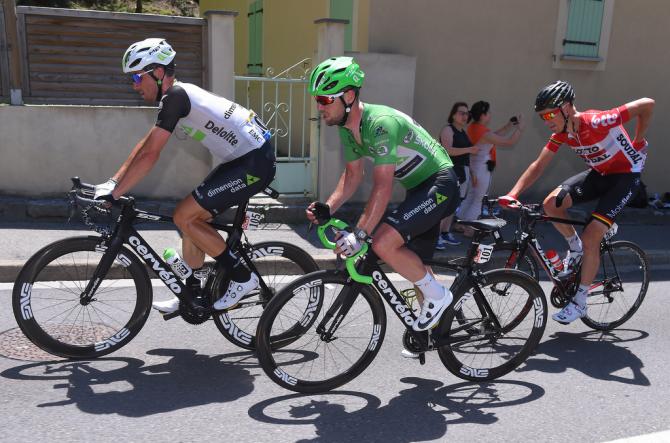
The changing peloton
Since the invention of professional cycling, the ambition has remained relatively unchanged with the goal of crossing the white line before your rivals. However, just about every other facet of the sport has undergone some form of change or adjustment in the last 100 years. Disc brakes and their place in the peloton continues to be a topic of water cooler conversation but in recent months, the decision to cut team sizes in the WorldTour has generated an equally diverse debate.
While there are suggestions the future of road cycling is smaller team sizes and reduced rosters, Eisel doesn't believe the sport will continue to downsize. And that perhaps it is better to focus on the facts and not the opinions of the Twitterati when attempting to enact change.
"You could always go back. That is not a problem," he told Cyclingnews of the change. "At the moment I don't think it will change the outcome of the race. Sometimes I believe more people read the comments on an article than what is written in the article. Leave the comments part out of it. It is not even a percentage that makes comments.
"Eight guys is not going to change anything. It is not going to save the team money. It saves the team money at the end of the day because you will have more riders left for the end of the season. You need eight for the Giro, eight for the Tour, eight in the Vuelta. That is already three riders you have left for the rest of the year who did 20 fewer race days, which makes a big change for the teams.
Although the likes of BMC and Movistar cutting rider rosters from 2018, Eisel reiterated that budget and not the eight-rider rule would have influenced such decisions.
"Nobody lost a job because of the eight-rider rule," he said. "We have more races in the WorldTour and teams are actually staying the same number of riders. Ok, if you say some team's lost riders, it is more like a financing problem. They would love to have more riders but if you say ok, I did my calculations and at the moment this is what I need and this is what I can afford. We are definitely struggling to find riders after the Tour. August next year the calendar gets even crazier when you have the Tour de France finish at the same time as RideLondon. The weekend after is San Sebastian and Poland. There are races everywhere. The Hammer Tour as well. Nobody lost a job because of that."
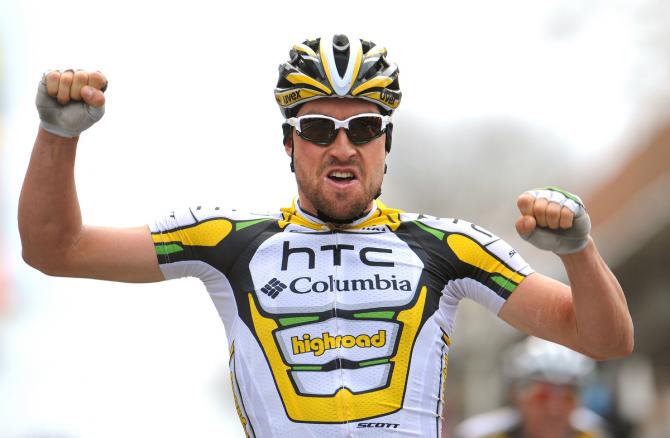
We're not a circus
For Eisel, regular talking points in cycling are often driven by those with little understanding of the sport with the eight-rider rule case and point. He explains that people and spectators often forget just what it takes to make it as a WorldTour cyclist.
"People always forget it is a professional sport, a team sport with sponsors investing a lot of money and it is not a circus," he said. "People always think we are a circus out there. I keep saying it again. I will get hammered on the comments but it is serious business and we do this for a living. We are travelling 200 days a year and when push comes to shove, we all try to be on top of the game every single day that we go out there. It doesn't matter if it is training. It is a consuming sport; it is one of the hardest sports out there."
Eisel also responded to criticism of the Tour de France's opening week of sprint stages as 'boring', describing the first week as often the most draining of a Grand Tour – again an example of where people miss the intricacies and subtitles of the sport.
"If someone says the first week is boring, then he has no idea about cycling. He has absolutely no idea about cycling," Eisel said. "Sorry for them but there is a lot happening and it is consuming, it is stressful. Chris Froome is probably more tired after the first week then the second week. Then people say 'it was an easy week, it was an easy day'. go watch something else!
"Honestly, we all go out there and give our best every day and teams prepare for that week. It is the same work as mountain days and sometimes it is more work because we have all the sports directors working in preparation for the first week of a Grand Tour. When you hit the mountains, it is pretty simple. Just hang on. Enjoy watching it or otherwise go out and ride your bike and then watch the final. Which is also good."
While Eisel identifies particular issues currently within the professional sphere of cycling, he isn't going to walk away just yet. Into the third year of his contract with Dimension Data in 2018, Eisel is likely to ride on and continue contributing to making the sport a better place. While a farewell at the Innsbruck Worlds on home soil would have been a fitting farewell, Eisel explained he won't be racing as "I don't want to take a place away from anybody because of my name."
With the cyclists, he started out slowly exiting the sport and giving way to a younger generation, Eisel's role as a sage of the peloton takes on greater significance with his position on the Athletes Commission.
Although he has built a solid palmares, his focus now is ensuring the peloton is in a better position than when first pinned on a race number at the start of the millennium.